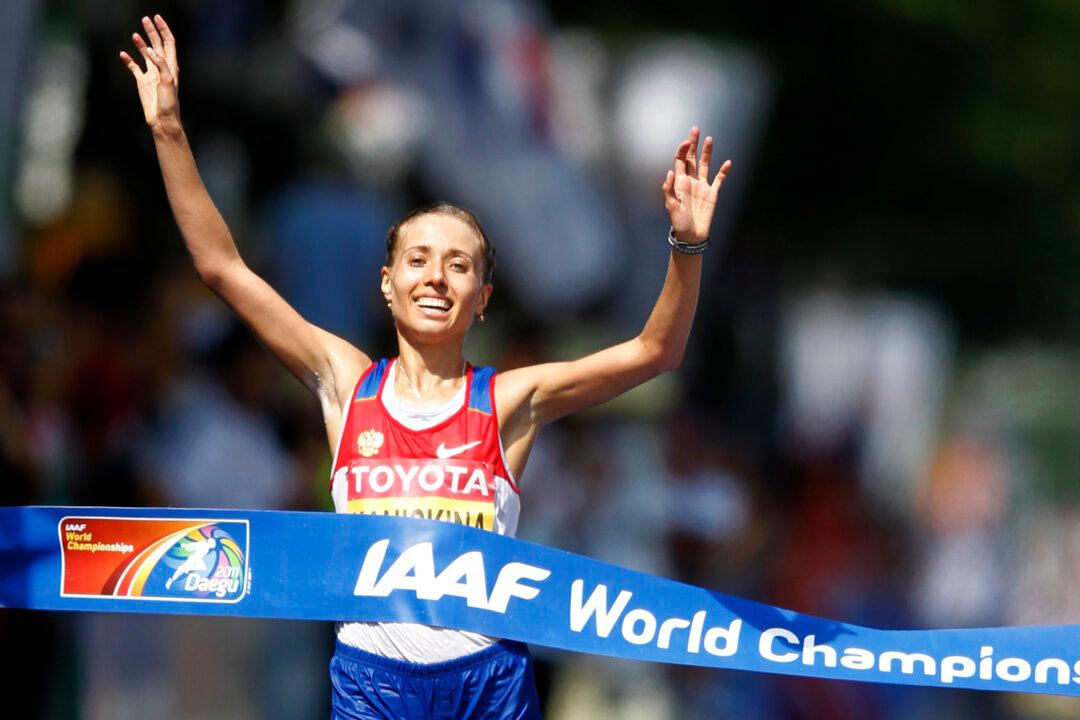
In this Feb. 5, 2014 file photo Russian President Vladimir Putin, center, visits the Olympic Athletes Village ahead of the Sochi 2014 Winter Olympics with Olympic Village Mayor Elena Isinbaeva, left, and Russian Minister of Sport, Tourism and Youth policy Vitaly Mutko in Sochi, Russia. On July 18, 2016, WADA investigator Richard McLaren confirmed claims of state-run doping in Russia. Pascal Le Segretain/Pool Photo via AP, file




